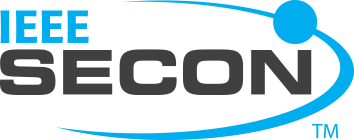We welcome the SECON 2022 keynote speakers!
Luca Mottola – Politecnico di Milano, Italy and RI.SE Sweden
Embedded Software for Air and Space Robots
Autonomous drones and small satellites are emerging as a powerful new breed of mobile sensing platform. Small embedded computers that enjoy various degrees of mobility while carrying rich sensor payloads, such as cameras and microphones, bring sensing where no other technology can reach. Notwithstanding recent advancements, the gap between current practice and large-scale autonomous operation remains significant. The challenges span diverse disciplines, from computer science and engineering up to regulatory and legal aspects. In this talk, we discuss the research efforts we are carrying out to overcome some of these challenges. Our work includes programming and operating systems, flight control, as well as realistic experimentation and is constantly fed by real-world deployments we carry out in a range of application domains.
Biography: Luca Mottola is an Associate Professor at Politecnico di Milano (Italy) and a Senior Researcher at RI.SE Sweden. His lab focuses on modern networked embedded systems, researching in intermittent computing, nanosatellites, mobile embedded computing, Internet-connected robotics, and low-power wireless. To date, he is the only European researcher to be granted multiple times with the ACM SigMobile Research Highlight and to ever win Best Paper Awards at multiple flagship conferences of both ACM SigMobile and ACM SigBed. He is past General Chair for ACM/IEEE CPS-IoT Week 2022 (flagship event in Cyberphysical Systems and Internet of Things) and past PC chair for ACM MOBISYS, ACM SENSYS , ACM/IEEE IPSN, and ACM EWSN. He is a Google Faculty Award winner and an associate editor of IEEE Transactions on Mobile Computing, ACM Transactions on Sensor Networks, and Elsevier Computer Networks. He holds or held visiting positions at Uppsala University, NXP Technologies, TU Graz, and USI Lugano.
Mo Li – Nanyang Technological University, Singapore
Our deployment and measurement experience with LoRa
Low Power Wide Area Networks (LPWAN) will be an important paradigm of wireless networking for the Internet of Things (IoT), which is complementary to cellular networks (e.g., 5G) and short-range wireless networks (e.g., Wi-Fi and Zigbee). This talk will share our recent deployment and measurement experience with LoRa, a major LPWAN technology based on unlicensed ISM frequency bands that allow free deployments. The talk will present how the LoRa promises on radio power reduction, communication range, and channel multiple access are realistic as evaluated in practice. The talk will also introduce our research efforts to explore MAC and PHY alternatives beyond standard LoRa, for improved communication and networking efficiency.
Biography: Dr. Mo Li is a Professor from Nanyang Technological University. Dr. Mo Li has been internationally recognized for his research in wireless sensing and networking, IoT for smart cities and urban informatics. Over the past few years, Dr. Li has developed numerous methods, techniques, and systems that resulted in over 100 papers published in top journals and conferences (MobiCom, MobiSys, KDD, INFOCOM, etc.) that received over 10000 citations. Dr. Li has been invited to give talks on his research in reputed universities and research institutes including Princeton, Rice, Oxford, ETH Zurich, U. of Goettingen, Yale, Purdue, Tsinghua, Microsoft Research, A*STAR, CAS, etc. Dr. Li has been on the editorial board of IEEE/ACM Transactions on Networking, IEEE Transactions on Mobile Computing, ACM Transactions on Internet of Things, and IEEE Transactions on Wireless Communications, all leading journals in the field. Dr. Li served the technical program committee member for the top conferences in computer system and networking, including ACM MobiCom, ACM MobiSys, ACM SenSys, and many others. Dr. Li received Nanyang Research Award (Young Investigator) in 2016, a prestigious recognition to his research excellence by NTU. Dr. Li is a Distinguished Member of the ACM since 2019, and a Fellow of the IEEE since 2020.


